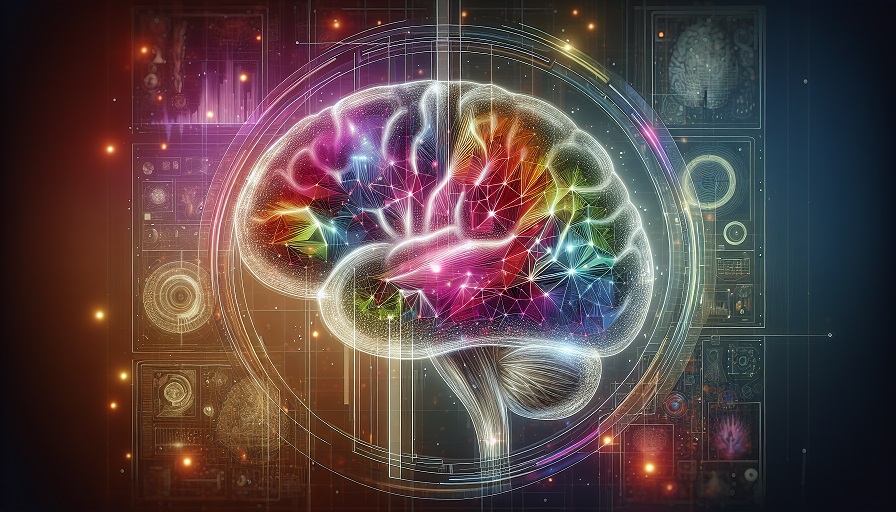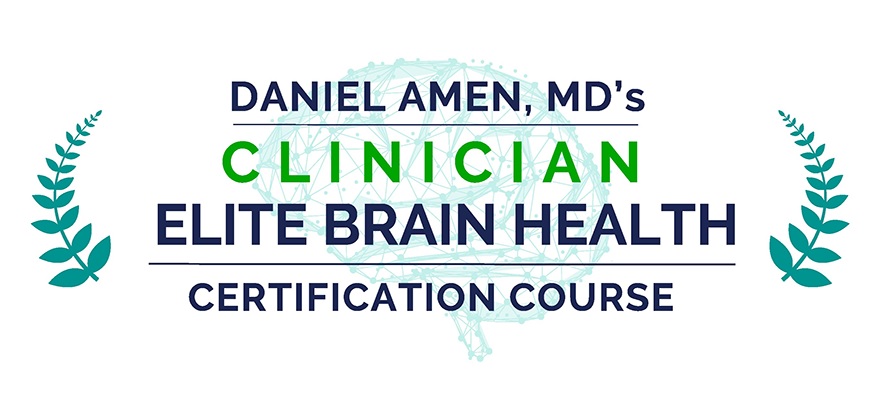
If you work in mental health, you have probably felt the landscape shifting under your feet. Clients arrive with symptom checklists they found online, podcasts in their ears, and questions about trauma, neurodivergence, and brain chemistry. They are not only asking, “What is wrong with me?” They want to know, “What is happening in my brain, and can it change?”
Traditional training gave you important tools. You learned diagnostic criteria, therapy models, ethics, and crisis management. Those foundations still matter. At the same time, the clients sitting across from you now often need more than what your original textbooks covered.
This is where brain based training comes in. It does not replace your existing skills. Instead, it fills in key gaps so you can meet modern clinical challenges with more clarity and confidence. Here we look at the core skills mental health professionals need today and how brain centered education can help you strengthen each one.
Contents
- Skill 1: Translating Complex Science Into Everyday Language
- Skill 2: Seeing The Whole Person Through A Brain Lens
- Skill 3: Designing Personalized, Brain-Smart Treatment Plans
- Skill 4: Collaborating Effectively Across Disciplines
- Skill 5: Supporting Client Self Care That Actually Helps The Brain
- Skill 6: Managing Your Own Brain Health As A Clinician
- Where Brain-Based Certification Fits Into The Picture
Skill 1: Translating Complex Science Into Everyday Language
Neuroscience research has exploded over the past few decades. The problem is that most of it was written for scientists, not for clinicians in fifty minute sessions. Your clients do not need a journal club. They need clear explanations that make sense of their experience.
Why This Skill Matters Now
Clients are already hearing bits and pieces of brain science from social media and podcasts. Some of it is accurate, some of it is half true, and some of it is simply wrong. They come to you with that mix in their minds.
When you can calmly translate accurate brain science into simple, compassionate language, you become a trusted filter. You help clients sort fact from fiction and see how real neuroscience connects to their daily lives.
How Brain-Based Training Helps
Good brain based training gives you ready to use metaphors, visual models, and explanations that work in session. Instead of saying, “Your prefrontal cortex is hypoactive,” you might say, “The part of your brain that helps you focus and make good decisions is tired and needs support.” That kind of explanation lands.
Over time, you build a vocabulary that is both scientifically honest and client friendly. That blend is a hallmark of modern, effective mental health care.
Skill 2: Seeing The Whole Person Through A Brain Lens
Mental health never exists in a vacuum. Sleep, movement, nutrition, hormones, medical conditions, trauma, and environment all shape the brain. Modern clinicians need to be able to notice those influences and factor them into their understanding of a client.
Beyond Symptom Checklists
Symptom lists help you organize information, but they do not always explain why a pattern is happening. Two people can meet criteria for the same disorder yet have very different brain histories. One might have a history of head injury and autoimmune issues. Another might have chronic sleep debt and long term exposure to chaos or violence.
When you view clients primarily through labels, it is easy to miss those differences. When you view them through a brain lens, you become curious about everything that has ever affected that organ.
How Brain-Based Training Helps
Structured brain health training teaches you how to gather brain relevant history. You learn which questions to ask about head injuries, infections, toxins, prenatal and birth history, sleep, substances, nutrition, and exercise.
You also learn how to connect that information to what you see in the room. This does not turn you into a neurologist, but it does give you a more complete picture. You begin to see where you can intervene directly and where you might need to collaborate or refer.
Skill 3: Designing Personalized, Brain-Smart Treatment Plans
Modern clients are less interested in generic advice. They want to know what will help their brain in particular. This requires more than choosing a therapy modality. It means tailoring interventions to likely brain patterns and vulnerabilities.
From One Size Fits All To Tailored Care
A client whose brain tends toward over activation and anxiety usually needs a different approach from someone whose brain tends toward low energy and sluggish thinking. Both may share a diagnosis, but their brains are asking for different kinds of support.
Modern mental health professionals need the skill of reading those differences and adjusting treatment plans accordingly, instead of offering identical homework to everyone.
How Brain-Based Training Helps
Brain focused courses teach you frameworks for understanding common brain system patterns. You learn how certain clusters of symptoms often relate to overactive or underactive networks. You also learn which lifestyle changes, therapeutic techniques, and environmental tweaks tend to support each pattern.
This means you can design treatment plans that are both evidence informed and shaped around the client’s likely brain profile. The result is often less trial and error and more meaningful progress.
Skill 4: Collaborating Effectively Across Disciplines
Very few clients receive care from only one professional. They might see a therapist, a psychiatrist, a primary care physician, a nutritionist, a physical therapist, or a coach. Modern mental health work is increasingly team based.
Collaboration works best when everyone can communicate clearly. The brain offers a natural common language. Physicians, therapists, nurses, and allied professionals all care about how the brain is functioning.
When you understand brain systems, you can send and receive referrals with more precision. You can say, “I am seeing signs that this client’s attention and impulse control systems may be under strain. Here is what I have noticed and what we are trying. I would value your input.” That kind of clarity strengthens professional relationships.
How Brain-Based Training Helps
Brain based education gives you the vocabulary and confidence to talk with other professionals about more than just symptoms and diagnoses. You can discuss possible brain influences, share observations, and integrate recommendations from other disciplines into your treatment plan.
Over time, you may become the person on the team who can bridge the gap between neuroscience and day to day mental health care. That role is both valuable and deeply satisfying.
Skill 5: Supporting Client Self Care That Actually Helps The Brain
Almost every client has heard they should sleep more, move more, and eat better. Generic advice has lost most of its power. Modern clinicians need to help clients understand why these habits matter on a brain level and how to make them realistic.
Turning Vague Advice Into Targeted Brain Support
When you know how sleep affects memory, emotional regulation, and impulse control, you can explain it in a way that feels worth changing. When you understand how specific nutrients support brain cells, you can help clients make small shifts that actually move the needle.
The goal is not to become a replacement for other professionals. It is to weave basic brain supportive habits into mental health care so that your work in session has a stronger foundation.
How Brain-Based Training Helps
Brain health training usually includes modules on lifestyle factors. You learn how sleep, exercise, nutrition, social connection, and stress affect different brain systems. You also learn how to present this information in small, manageable steps.
This allows you to make self care recommendations that feel less like generic wellness slogans and more like targeted support for the organ your client is trying to heal.
Skill 6: Managing Your Own Brain Health As A Clinician
Modern mental health work is emotionally intense. Burnout, compassion fatigue, and decision overload are real risks. One of the most important skills you can develop is the ability to protect your own brain so that you can keep showing up for others.
You Are A Brain Owner Too
It is easy to forget that you have the same organ you talk about all day. You need focus, emotional balance, and resilience just as much as your clients do. When your own brain is exhausted, your clinical judgment, empathy, and creativity all suffer.
How Brain-Based Training Helps
Many brain focused programs invite clinicians to apply the material to themselves. You learn how to notice your own brain patterns, recognize early warning signs of overload, and choose habits that support your cognitive and emotional health.
This is not only good for you. Clients can sense when their clinician is practicing what they teach. That congruence builds trust and gives your recommendations extra weight.
Where Brain-Based Certification Fits Into The Picture
You can start strengthening these skills through self study, short workshops, and reading. For many professionals, there comes a point when scattered learning is not enough. They want a structured pathway that ties all the pieces together.
Brain based certification programs offer that structure. They are designed to help you build a coherent framework around brain systems, assessment, treatment planning, and collaboration. They also provide a credential that signals your competence to clients, colleagues, and organizations.
If you recognize yourself in the skills described above and feel both challenged and excited by the idea of specializing in brain health, more advanced training might be the right next step. It is a way of saying, “I am ready to align my knowledge, my practice, and the needs of the clients I serve.”
Modern mental health care calls for clinicians who can connect brain science with human stories. By building these skills and filling the gaps with brain based training, you position yourself to meet that call with clarity, compassion, and lasting impact.

